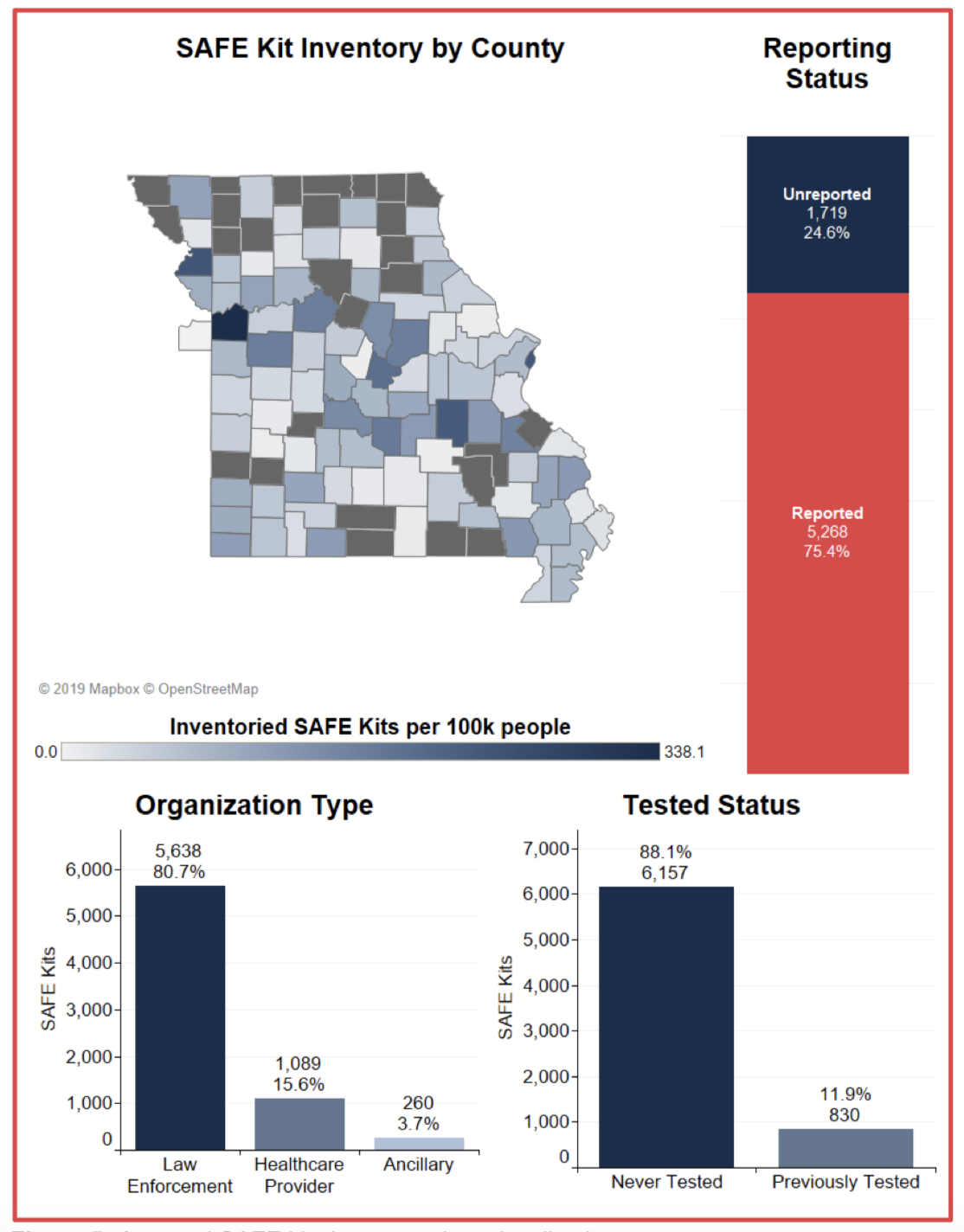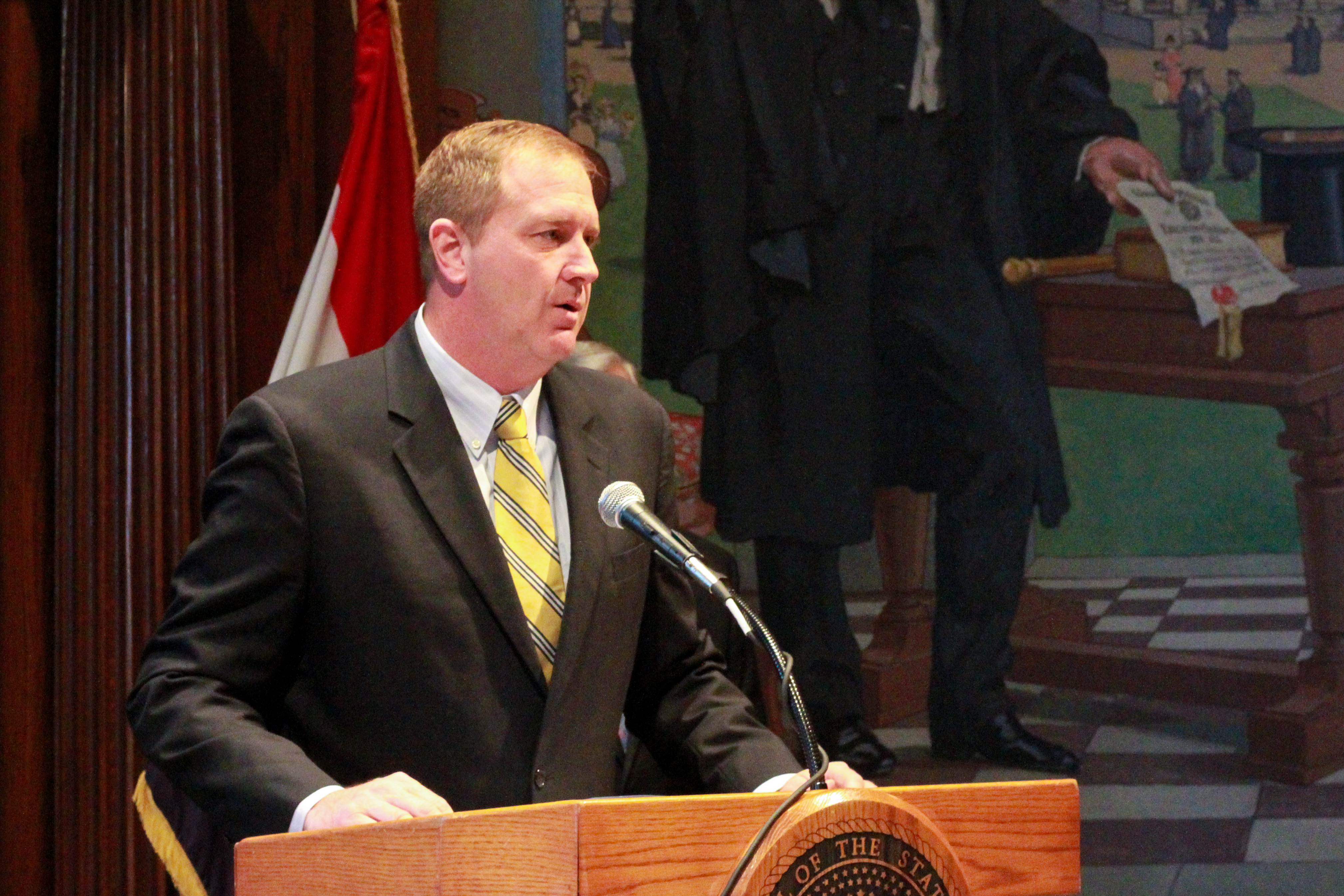More than 6,000 untested sexual assault kits have been found throughout Missouri after an audit from the Attorney General’s Office reviewed inventory from hospitals, law enforcement agencies, and other organizations.
In all, 6,987 kits were identified under the audit, which includes 6,157 untested kits and an additional 830 that might need to be retested, the office announced Wednesday. Of those kits, police reports were located for 5,268 (75.4 percent); reports were not filed or accessible for 1,719 kits, according to the Attorney General’s Office report.
Now that the inventory has been collected, the Attorney General’s Office will focus on testing the kits with the use of a private lab in partnership with the Missouri State Highway Patrol. The office also plans to establish an electronic tracking system.
“It’s important to remember these kits are not just numbers. They are not footnotes to the reporting of a crime. They represent real human beings, who have suffered, confronted their fears, reported the assault, and submitted a kit,” Attorney General Eric Schmitt said Wednesday. “A kit that may have been put on a shelf and remained untested — until now.”
Schmitt has made tackling the untested rape kits in the state a priority during his tenure as the state’s chief law enforcement official since he took office in January. Schmitt previously told The Missouri Times: “I think it’s just really important for us to honor the courage of the victims who have come forward to make sure those kits don’t sit on a shelf somewhere.”

Through the SAFE Kits Initiative he has championed, Schmitt’s office has worked throughout the year on collecting the “inventory” of untested kits and is creating a statewide protocol for how they are to be handled. He also picked Judge M. Keithley Williams to lead the SAFE Kit Initiative.
“Thanks to the dogged work that our great team of analysts did, and the fantastic participation and cooperation of law enforcement and healthcare partners, we now have a clear picture of how many sexual assault kits are around the state. Now that we’ve accomplished this major part of the initiative, we can look forward to tracking and testing these kits,” Williams said in a statement.
The inventory included 627 law enforcement agencies, 193 healthcare providers, and four ancillary organizations, according to a report released by the Attorney General’s Office Wednesday.
Law enforcement agencies were responsible for 5,638 kits, healthcare providers held 1,089, and the other organizations reported 260.
Jackson County had the highest rate of kits at 338.1 per 100,000 people from 2,368 kits, the report said. Moniteau County had the lowest rate among those with inventoried kits: 6.2 per 100,000 people.
Additionally, 27 counties did not have any inventoried rape kits, the report said.
More than 67 percent of the inventoried kits were collected from female victims, 5.4 percent were from male victims, and 27.1 percent were unknown. Spikes were reported among female victims at ages 3 and 4 as well as 18 and 19; spikes for male victims occurred at ages 3 and 4. The report conjectured a reduced likelihood of reporting among older males.
A $2.8 million dollar grant has already been provided by the Bureau of Justice Assistance for tackling the untested kits. The Attorney General’s Office said it has received 75 percent of that grant and has applied for the remaining funding.
Existing funds should cover the testing of 1,250 kits under the grant period. However, once actual costs are known, the number of kits to be tested should increase “due to a favorable competitive bid for DNA testing services,” the report said.
“The [Attorney General’s Office] will use a testing strategy that avoids statute of limitations issues and considers prosecutorial interests while ensuring geographic proportionality of testing funds,” the report said. “This will be done by testing approximately 500 of the most recently collected kits found statewide then distributing the remaining 750 kits proportionally among the six inventory sections.”
The office said Williams and other analysts spent more than 4,200 hours and traveled more than 17,000 miles to complete the inventory.
 Loading...
Loading...

Kaitlyn Schallhorn was the editor in chief of The Missouri Times from 2020-2022. She joined the newspaper in early 2019 after working as a reporter for Fox News in New York City.
Throughout her career, Kaitlyn has covered political campaigns across the U.S., including the 2016 presidential election, and humanitarian aid efforts in Africa and the Middle East.
She is a native of Missouri who studied journalism at Winthrop University in South Carolina. She is also an alumna of the National Journalism Center in Washington, D.C.
Contact Kaitlyn at kaitlyn@themissouritimes.com.
















